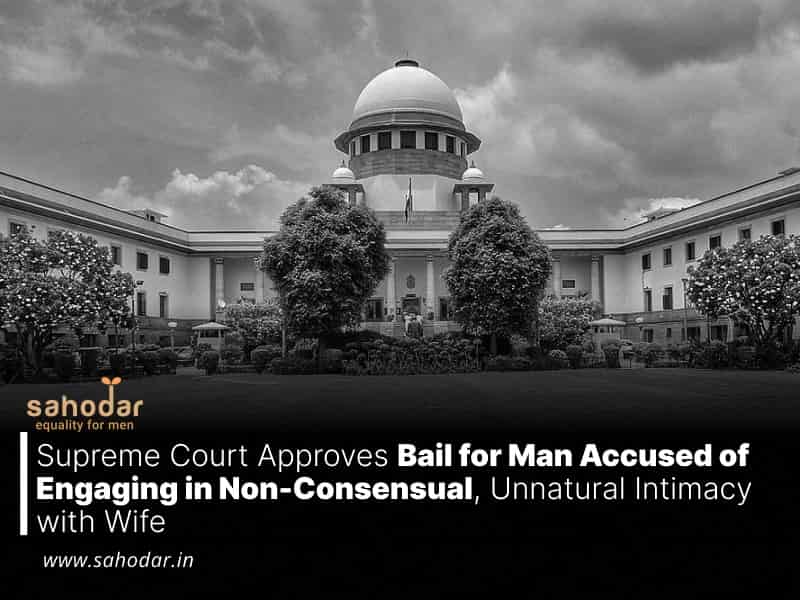The Court noted that a settlement had apparently been entered into between the parties and even if the Court is not accepting the same, the financial transactions would have to be given weightage.
On Monday, the Supreme Court took the decision to suspend the sentence of a man accused of engaging in non-consensual, unnatural relations with his wife. Granting him bail, the Court observed specific financial transactions occurring between the husband and wife.
Justices AS Bopanna and PV Sanjay Kumar, presiding over the case, acknowledged the existence of a potential settlement between the parties. While the Court may not fully endorse the settlement, it deemed it necessary to consider the financial transactions as significant factors in the proceedings.
“What persuades us to consider the prayer is that, as already noted, the appellant and the respondent are husband and wife and even, at this moment, if we do not accept the settlement entered into between the parties, the fact remains that certain financial transactions were also involved and these are aspects which would be looked into subsequently,” the bench observed.
The Court clarified that the individual in question wasn’t a seasoned criminal but rather the spouse of the complainant.
“In a matter of the present nature, as we are not considering the suspension of sentence of a hardened criminal but, as already indicated, the appellant is the husband of the respondent, we deem it appropriate that the balance would tilt in favour of the appellant for grant of the prayer,” the Court said.
The Sessions Court acquitted the husband of charges of rape and cruelty towards his wife, though upheld his conviction for the offence of unnatural sex under Section 377 IPC and for voluntarily causing hurt.
In March, the Chhattisgarh High Court declined to suspend his sentence and provide interim bail, prompting an appeal to the Supreme Court.
Upon considering a compromise between the parties and financial transactions, the Supreme Court granted the requested relief.
Bail was granted under the conditions set forth by the trial court.

